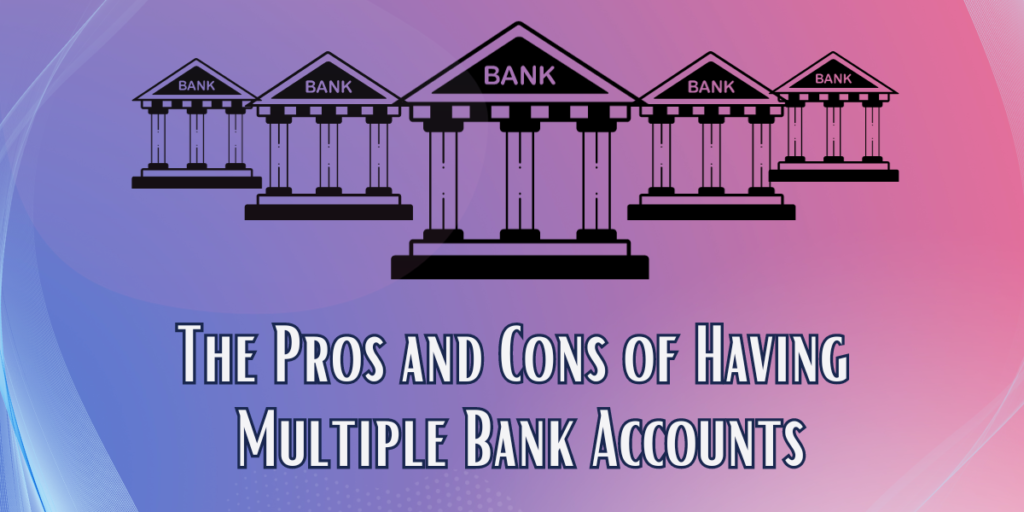In an era of financial diversity, the traditional notion of having a single bank account is evolving. Many individuals are embracing the idea of managing multiple bank accounts to meet various financial needs and goals.
This article explores the pros and cons of having multiple bank accounts, providing insights into efficient management and potential pitfalls.
Pros of Having Multiple Bank Accounts
Organized Finances
One of the primary advantages of maintaining multiple bank accounts is the ability to organize finances more effectively.
Allocating funds for specific purposes, such as bills, savings, and discretionary spending, can streamline budgeting and enhance overall financial management.
Enhanced Budgeting
Multiple accounts allow for a more detailed budgeting approach. By segregating funds based on different expense categories, individuals gain better control over their spending patterns.
This can lead to more conscious financial decisions and improved long-term savings.
Maximizing Interest Rates
Diversifying accounts among different banks may provide the opportunity to capitalize on higher interest rates.
Some banks offer better rates for savings accounts or certificates of deposit, allowing individuals to optimize their returns on various financial instruments.
Security Against Fraud
Having multiple accounts can offer an added layer of security against fraud.
In the unfortunate event of one account being compromised, the impact can be limited to that specific account, preventing a complete financial disaster.
Cons of Having Multiple Bank Accounts
Increased Fees
While having multiple bank accounts can offer benefits, it may also lead to increased fees.
Many banks charge maintenance fees for each account, and these costs can accumulate. Individuals need to weigh the benefits against the potential expenses associated with managing multiple accounts.
Difficulty in Tracking Transactions
With numerous accounts, tracking transactions can become challenging. This can result in overlooking fees, missing payments, or encountering accounting errors.
It’s crucial to establish a robust tracking system to avoid financial discrepancies.
Potential Impact on Credit Score
Opening multiple accounts within a short timeframe can have implications for one’s credit score. Each account inquiry and new account can slightly lower the credit score.
Careful consideration is needed to balance the advantages of multiple accounts with potential impacts on creditworthiness.
Time-Consuming Account Management
Managing multiple bank accounts requires time and effort. Regularly monitoring balances, tracking transactions, and coordinating fund transfers demand organizational skills.
Individuals with busy schedules may find it challenging to dedicate sufficient time to each account.
How to Choose the Right Number of Bank Accounts
Assessing Financial Needs
The number of bank accounts one should have depends on individual financial needs.
Assessing the frequency of transactions, the variety of financial goals, and personal preferences can help determine the optimal number of accounts.
Evaluating Banking Features
Different banks offer various features, such as low fees, high-interest rates, and innovative financial tools.
Conducting thorough research and comparing banking options can aid in selecting banks that align with specific financial requirements.
Considering Convenience
While diversifying accounts can offer benefits, it’s essential to consider convenience.
Managing multiple accounts should not compromise ease of access or lead to confusion. Striking a balance between diversification and convenience is key.
Conclusion
In conclusion, the decision to have multiple bank accounts comes with both advantages and challenges.
While it offers organized finances, enhanced budgeting, and security against fraud, individuals must navigate potential drawbacks such as increased fees and the time-consuming nature of account management.
Thoughtful consideration, strategic planning, and adherence to responsible financial practices are key to making the most of multiple bank accounts.
